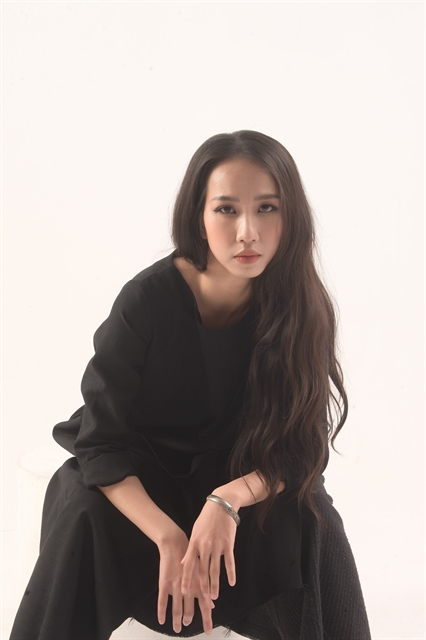 Life & Style
Life & Style

 |
| Việt Nam National Opera & Ballet's soloist Phạm Thu Hằng. — Photo coutersy of Phạm Thu Hằng |
Phạm Thu Hằng is soloist at Việt Nam National Opera & Ballet (VNOB). She was honoured with the best dancer award at National Dance, Sing and Music Festival 2021 and will perform in the theatre's new ballet Đông Hồ on March 22 and 23.
Việt Nam News reporter Nguyễn Bình chats with her about her new role and ballet career.
Could you tell Việt Nam News readers about Đông Hồ and your role in the ballet?
Đông Hồ folk painting is a cultural symbol of the northern area of Việt Nam. With simple but refined lines, the folk painting genre depicts the old agricultural society and expresses Vietnamese farmers' wishes for a prosperous and happy life.
Each Đông Hồ painting has its own story, and each dancer has different roles. I will dance different roles in Đông Hồ, but the role I like most in the ballet is the character from an except entitled Hứng Dừa (Scene of Catching Coconut).
My role in Hứng Dừa will not appear in the whole ballet, but it is key to connecting the parts.
You have won top awards at international and domestic festivals. The most recent award was 'best dancer' at the national festival in 2021. What difficulties did you meet with your new role?
In Đông Hồ ballet, the most difficult is to control separate parts of my body. In a movement, my upper body needs to be soft and light while releasing my hips. My legs must be strong and straightened to carry the body weight on pointed shoes.
Furthermore, ballet requires lifting, which is one of the important ballet techniques. So my co-star and I must coordinate smoothly and work on our flexibility to avoid injury.
How did you begin training in ballet as a young child, and what inspired you to do so?
Ballet choose me. I dreamed of becoming a singer and fashion designer when I was small. When I was seven years old, my paternal grandfather took me to Hà Nội Children's Palace for singing class. However, I was charmed by ballet and watched with fascination.
My grandfather convinced my parent to let me take a dancing class. I was so small, and I became the worst student in the class. After a call from my teacher to my parents about my ability, I began applying myself.
In 2004, I decided to become a ballerina, and I graduated with honours from Việt Nam Dance College. So far, I have been dancing for 26 years, and it has become my life.
What types are you most attracted to of the various characters you play successfully? Is there a role you haven’t played yet but have been dreaming about for a while?
I have had the chance to dance in different ballets, and each role is unique and emotional to me. So all the roles that I have performed give memorable impressions.
Juliet's role in Romeo & Juliet ballet. This is my all-time favourite ballet, and I always see it as a peak in my career. I hope that I will have a chance to perform this role.
It isn't easy to find ballet shows in Việt Nam. How do you keep your passion for ballet and make a living?
Ballet originated in Europe and was developed as court entertainment. Ballet dancers in developed countries can earn good money. So they are devoted to dance.
However, they must work in a highly competitive world to keep their position. This also requires them to improve their expertise constantly.
In Việt Nam, it is not enough if a ballet dancer only has passion because she cannot make a living. She has to do extra jobs to keep her passion for ballet.
What are the biggest challenges of this work and a soloist as well?
Ballet is really hard. It has a high level of artistic expression and technical difficulty. It is not gained in days but it is a long-lasting practice that challenges human limits.
There were times I wanted to quit ballet because I was exhausted. I had to practise daily with a painful body and bloody toes, or I felt disappointed when I could not do a new move.
Being a soloist in ballet is even more pressure because the stage is yours, and all the lights are on you. A lot of difficult techniques require more rigorous training.
Or even when I had to experience the thrill of heartbreak when standing in the wings before the performance. But then, with some strength, when I stepped on the stage, all my thoughts dissipated, and I began to dance.
All the pain and pressure help me realise that a human's ability to overcome difficulties is limitless. Difficulties are a dancer's friend because it is the driving force for each dancer, making her perfect with the desire to bring beautiful movements and emotions to the audience. — VNS




